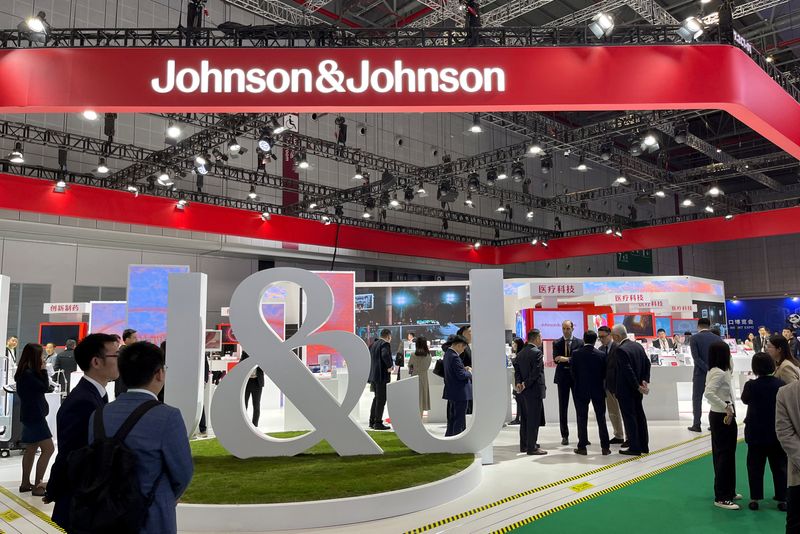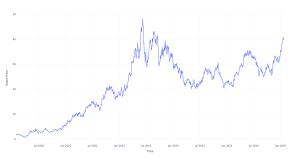
By Bhanvi Satija and Puyaan Singh
(Reuters) – Johnson & Johnson said on Monday it would buy neurological drug maker Intra-Cellular Therapies for $14.6 billion, its biggest deal in more than two years, boosting its presence in the market for brain disease treatments.
The deal would help accelerate growth in J&J’s drugs business after the company spun off its consumer health unit in 2023. It has made several transactions in the past few years to boost its pharmaceuticals and medical devices units, including a $13.1 billion deal for Shockwave Medical in 2024.
“These deals do not happen every day, and as a matter of fact, for us, larger deals are more outliers,” said J&J CEO Joaquin Duato, speaking at a major industry conference that kicked off Monday in San Francisco.
Bankers expect more dealmaking at the conference and in general in 2025, betting activity could exceed $10 billion on expectations for less antitrust scrutiny once President-elect Donald Trump takes office on Jan. 20.
J&J has offered to buy each share of Intra-Cellular for $132, representing a 39% premium to the stock’s closing price on Friday. Shares of Intra-Cellular rose 34% to $128 in afternoon trading, while J&J rose 1.5%.
The deal would allow J&J to gain access to Intra-Cellular’s oral therapy, Caplyta, which is approved in the U.S. to treat schizophrenia and depressive episodes associated with bipolar disorder, and other experimental drugs under development.
Caplyta brought in $481.3 million in sales in the first nine months of 2024 and some analysts do not expect it to face generic competition until 2040. Analysts expect the treatment to bring in more than $1 billion in sales next year, according to data compiled by LSEG.
RBC Capital analyst Shagun Singh said the deal fit strategically into J&J’s neurological drugs division, an important area for the company.
But at least one investor raised concerns that it could potentially face a tougher antitrust review.
“I do have a lot of antitrust concerns about this deal,” said Jeff Jonas, portfolio manager at Gabelli Funds, which owns about 193,035 shares of J&J.
Jonas said there was an overlap in the products of the two companies, given J&J has a late-stage depression drug and a schizophrenia treatment already on the market.
J&J’s expectation that it would close the deal “later this year” seems to incorporate a tough review even under the new administration, he said.
The healthcare giant’s schizophrenia drug paliperidone, sold under multiple brand names such as Invega and Xeplion, brought in $3.16 billion in sales in the first nine months of 2024.


